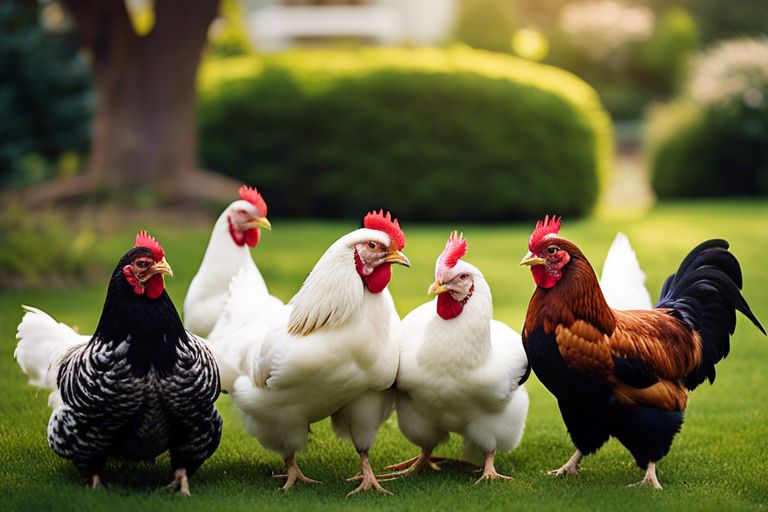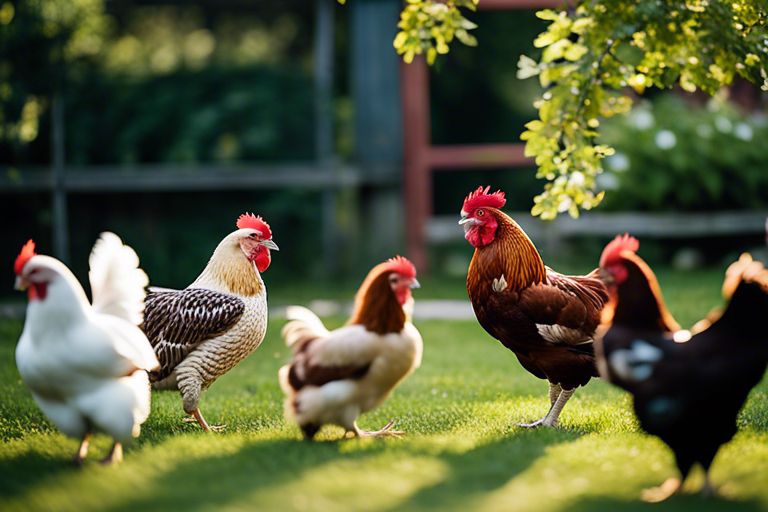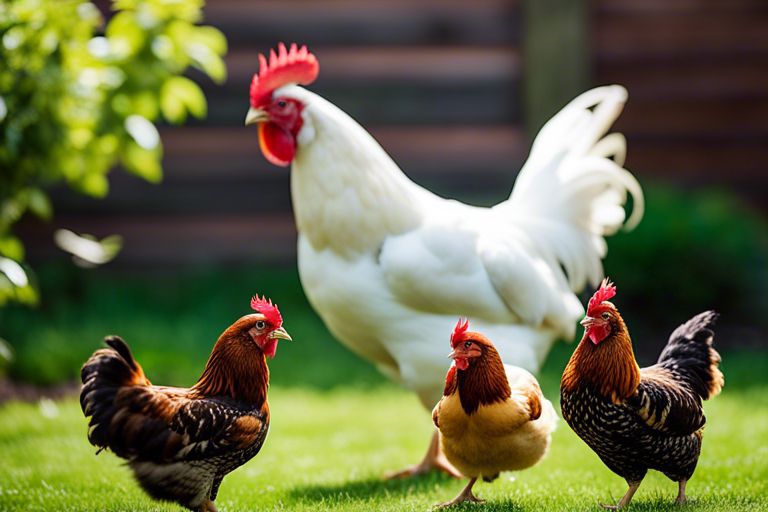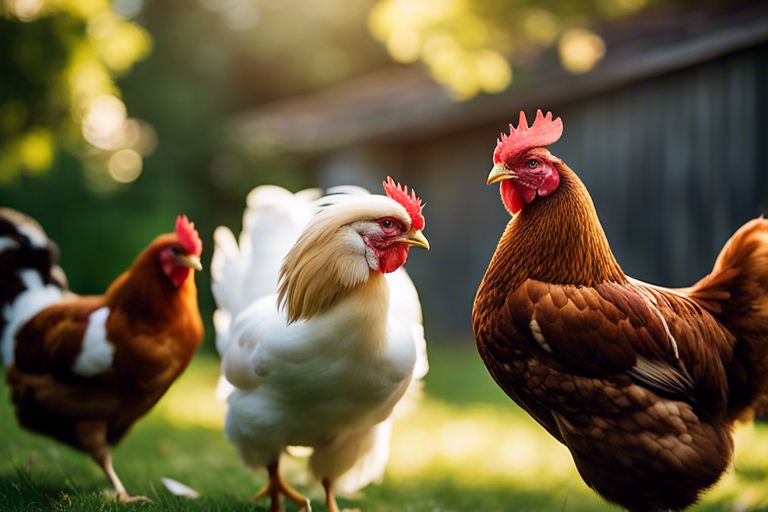This comprehensive guide will help you navigate the world of chicken breeds and select the perfect one for your backyard flock. From egg production to temperament, each breed has unique characteristics that can influence your decision. By considering factors such as available space, climate, and your own preferences, you can make an informed choice that will ensure a happy and healthy flock for years to come. Whether you are a beginner or a seasoned chicken enthusiast, this article will provide valuable insights to help you choose the right chicken breed for your specific needs.
Factors to Consider When Choosing a Chicken Breed
To ensure you choose the right chicken breed for your backyard flock, there are several important factors to take into consideration. From climate adaptability to temperament and behavior, each aspect plays a crucial role in determining which breed will thrive in your specific environment. By carefully evaluating these factors, you can set your flock up for success and enjoy the rewards of raising healthy chickens.
Climate Adaptability
Clearly, one of the first things to consider when selecting a chicken breed is its adaptability to the climate in your region. Some breeds are better suited for cold climates, while others thrive in hot and humid conditions. It’s vital to choose a breed that can withstand the temperatures and weather patterns of your area to ensure their well-being and productivity.
Temperament and Behavior
Breed temperament and behavior play a significant role in the overall dynamics of your flock. Some breeds are known for being docile and friendly, making them ideal for families with children, while others may be more aggressive or flighty. When deciding on a breed based on temperament, consider how it will interact with other chickens in the flock and with you as the caretaker.
- Consider the climate in your region when choosing a chicken breed.
- Take into account the temperament and behavior of the breed to ensure compatibility with your flock.
- Assume that each breed has different requirements and characteristics that should be taken into consideration.

Egg Production and Meat Yield
Egg-Laying Rate and Egg Size
Some chicken breeds are renowned for their impressive egg-laying abilities and the size of the eggs they produce. When choosing a breed for egg production, consider how many eggs you want your hens to lay consistently and whether you prefer smaller or larger eggs.
Breeds for Meat Production
On the other hand, if you’re looking for chickens primarily for meat production, there are breeds specifically bred for their meat yield. These breeds typically grow faster and have more muscle mass, making them ideal for raising for meat.
Breeds like Cornish Cross and Red Broilers are popular choices for meat production due to their ability to reach market weight quickly and efficiently convert feed into muscle. Consider your priorities when selecting a breed for meat production, as some may prioritize growth rate over other characteristics.

Tips for Managing Your Backyard Flock
Despite the joy of having a backyard flock, managing them effectively is crucial for their well-being and productivity. Here are some tips to help you successfully manage your feathered friends:
- Regularly check on your chickens to ensure they are healthy and safe.
- Provide a clean and spacious coop for your chickens to roam and roost comfortably.
- Keep their feed and water containers clean and filled regularly.
- Monitor for signs of illness or distress and seek veterinary care when needed.
- Establish a routine for feeding, watering, and egg collection to keep your flock happy and healthy.
After implementing these tips, you’ll find that managing your backyard flock becomes a rewarding and enjoyable experience.
Space and Housing Needs
Backyard chickens require adequate space to move around freely and housing that provides shelter from the elements and predators. A well-constructed coop with nesting boxes, perches, and proper ventilation is necessary for their well-being.
Health and Maintenance
With regular health checks and a clean living environment, you can help prevent common illnesses and ensure the overall health of your flock. Proper nutrition, access to fresh water, and cleanliness in their living quarters are key factors in maintaining their well-being.
Tips for maintaining the health of your backyard flock include providing a balanced diet, administering necessary vaccinations, and practicing good hygiene habits when handling your chickens.

Additional Considerations
Cost and Availability of Breeds
For many aspiring backyard chicken keepers, the cost and availability of chicken breeds are important factors to consider. Some breeds are more expensive to purchase initially, either due to their rarity or desirability. Additionally, certain breeds may be harder to find at local hatcheries or rescue organizations, requiring more effort to source.
Breed Preservation and Rarity
Assuming you are interested in preserving heritage breeds or rare breeds, it’s vital to understand the significance of breed preservation and the responsibility that comes with it. By choosing to raise a rare breed, you are contributing to the conservation of genetic diversity within poultry populations and helping to prevent certain breeds from becoming extinct.
Availability of certain rare breeds may be limited, requiring you to seek out specialized breeders or conservation organizations dedicated to preserving these breeds. It’s important to do thorough research and ensure you are equipped to care for and continue the legacy of these unique chickens.
Final Words
So, when it comes to choosing the right chicken breed for your backyard flock, it’s important to consider factors like space, climate, and your specific needs as a chicken owner. Do your research on different breeds, talk to other chicken keepers, and consider your own preferences in terms of egg production, temperament, and appearance. By taking the time to assess these factors, you can ensure that you select the perfect breed or breeds to suit your backyard flock. Recall, each breed has its own unique characteristics, so choose wisely to set yourself up for success in raising healthy and happy chickens in your backyard.
FAQ
Q: Why is choosing the right chicken breed important for a backyard flock?
A: Choosing the right chicken breed is crucial as it determines factors such as temperament, egg production, cold hardiness, and overall suitability for your specific backyard environment.
Q: What factors should I consider when choosing a chicken breed for my backyard flock?
A: Factors to consider include climate adaptability, egg-laying capacity, space requirements, temperament, and any local regulations regarding chicken breeds.
Q: What are the different types of chicken breeds available for backyard flocks?
A: Chicken breeds can be categorized into categories such as egg-laying breeds, meat breeds, dual-purpose breeds, ornamental breeds, and bantam breeds.
Q: How do I determine the space requirements for the chicken breed I choose?
A: Space requirements vary based on the breed size. For example, bantam breeds require less space than large standard breeds. It’s important to research and provide adequate space for the chosen breed.
Q: Which chicken breeds are known for their high egg-laying capacity?
A: Breeds such as Leghorns, Rhode Island Reds, and Australorps are popular for their high egg production. Consider these breeds if egg-laying is a priority for your backyard flock.
Q: How can I ensure the chosen chicken breed is suitable for my local climate?
A: Research the breed’s cold or heat tolerance and choose breeds that are suitable for the climate in your area. Providing proper shelter and care based on the breed’s needs is also crucial.
Q: Are there any resources available to help me choose the right chicken breed for my backyard flock?
A: Yes, there are online resources, books on poultry breeds, and local poultry associations that can provide valuable information and guidance in selecting the right chicken breed for your backyard flock.










